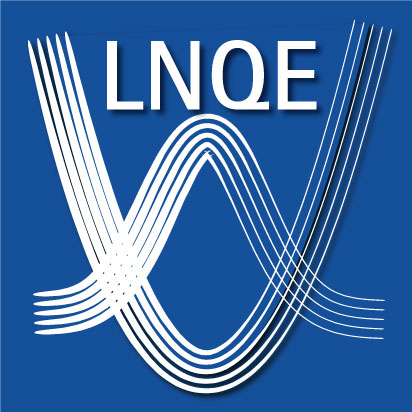SommerUNI (formerly Herbstuniversität) is an offer of Leibniz University Hannover especially for girls of the 10th to 13th classes who are interested in studying mathematics, computer science, natural sciences or technology (MINT). On July 3, 2018, the Laboratory for Nano- and Quantum Engineering presented nanotechnology.
The programme started with a short lecture on nanotechnology and the possibilities of studying nanotechnology at Leibniz University Hannover. Then current research work was presented in small groups in four stations in the laboratories. In addition, roundtables offered the opportunity to ask questions to current students of nanotechnology. The four stations at a glance:
- Sensors: The development of new sensors (especially nanosensors) up to compact measuring systems for fast detection of the smallest concentrations of substances in liquids and gases (air), mainly for medical, bio-, environmental and safety applications, were shown.
- Photocatalysis: Very thin layers of titanium dioxide have two effects. Firstly, water dripping is prevented and spreads over the surface like a thin film, and secondly, organic dirt is decomposed on the surface. By combining both effects, the surfaces clean themselves almost automatically.
- Nanoparticles: Controlled synthesis makes it possible to produce the smallest particles of the most varied composition, size and, in particular, shape. Such nanoparticles have a wide variety of applications, for example as sensors, in medicine or in innovative displays as luminous colour dots.
- Transmission electron microscope: In this special microscope, electrons are accelerated at high voltage and radiated through very thin samples so that the image contains direct information about the inside of the sample. Resolutions in the nanometre range are achieved. In crystalline samples it is even possible to map the arrangement of individual atoms.
The Summer UNI 2018 on the topic of nanotechnology was very well attended with 20 participants and overall a complete success. It was a lot of fun!










![[Translate to English:] Logo Zusammenland farbig](/fileadmin/_processed_/a/9/csm_zusammenland_4c_e78505eb7d.png)
![[Translate to English:] Logo Zusammenland-schwarzweiß](/fileadmin/_processed_/1/2/csm_zusammenland_sw_f06954e75c.png)